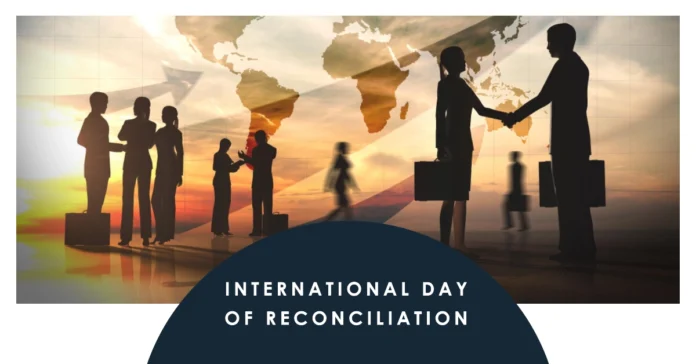As of my knowledge cutoff date in September 2021, there is no officially recognized “International Day of Reconciliation” observed on December 16th. However, there is a South African holiday called the Day of Reconciliation, which is celebrated on December 16th each year. Please note that this holiday is specific to South Africa and is not an international observance.
The Day of Reconciliation in South Africa is a public holiday with roots in two historical events. The first event occurred in 1838 when the Voortrekkers, Dutch settlers in South Africa, won the Battle of Blood River against the Zulu Kingdom.
he Voortrekkers had taken a vow that if they were victorious, they would honor the day as a religious holiday. They called it “Dingane’s Day” or “Day of the Vow.”
he second event took place on December 16, 1961, when the African National Congress (ANC) launched its armed struggle against the apartheid regime. The day was marked as the “Day of the Covenant.”
In 1994, after the end of apartheid, the South African government decided to keep December 16th as a public holiday, but they renamed it the “Day of Reconciliation” to promote unity and healing between the diverse communities in the country.
Description:
The Day of Reconciliation aims to achieve the following objectives:
1. Foster national unity: The day seeks to bring together South Africans from diverse backgrounds, fostering unity and understanding among the various communities.
2. Promote healing and reconciliation: The day encourages reflection on the past and promotes healing from the wounds of apartheid and other historical injustices.
3. Encourage dialogue: The Day of Reconciliation provides an opportunity for South Africans to engage in conversations about the country’s history and the ongoing process of reconciliation.
Various activities and events may be organized in South Africa on the Day of Reconciliation, including:
1. Commemorative events: Government officials, community leaders, and civil society groups may organize events to commemorate the day and promote reconciliation.
2. Educational programs: Schools, universities, and other educational institutions may hold special programs or workshops that focus on the history of South Africa and the process of reconciliation.
3. Cultural events: Music, dance, and other cultural performances may be organized to celebrate the diverse cultures in South Africa and to promote understanding and unity among different communities.
4. Public discussions and debates: Public discussions, debates, and lectures may be organized to encourage dialogue on the history of South Africa and the ongoing process of reconciliation.
The Day of Reconciliation serves as a reminder of the importance of unity, healing, and understanding among the diverse communities in South Africa. By fostering dialogue and promoting reconciliation, the day aims to contribute to a more peaceful and inclusive society.
Hidden Object Games
Embark on a meaningful journey this International Day of Reconciliation with our special Hidden Object Game. Traverse through powerful historical scenes, symbols of unity, and places of reconciliation around the globe, all while searching for hidden objects.
Features of the game:
- Captivating scenes symbolizing peace and unity from around the world.
- Learn interesting facts about reconciliation efforts worldwide.
- Puzzling objects to locate and challenges to overcome.
- Ideal for all ages, promoting understanding and awareness.
- Engaging way to learn about the significance of reconciliation.
Play, learn, and foster unity. Like, share, and subscribe for more educational hidden object games. Happy International Day of Reconciliation!
